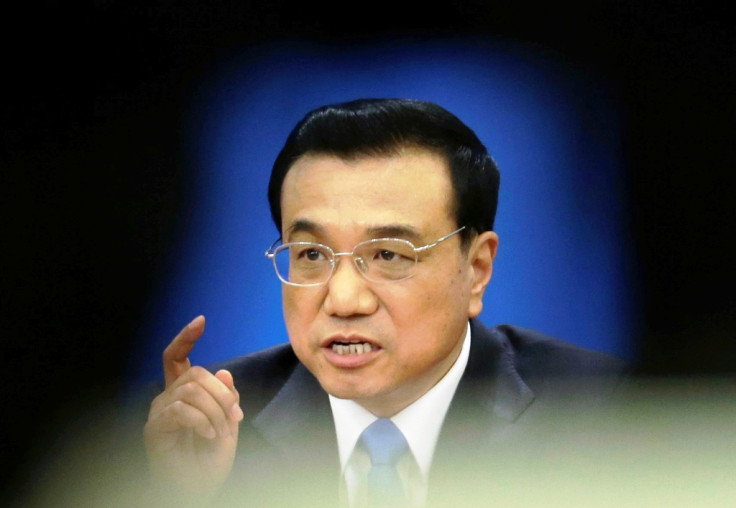Chinese Premier Li Keqiang: 7% growth will not be easy to achieve

Chinese Premier Li Keqiang has raised doubts about his nation's ability to grow its economy by 7% this year.
But Li ruled out currency devaluation to promote growth through exports.
Speaking to the Financial Times, Li said that while China was on the receiving end of deflation, owing to falling global commodity prices, China was not in deflation,
He added that China will welcome steady growth in its real estate market, but that Beijing will guard against housing bubbles.
He was also reported as saying that China does not want to see "major economies trip over each other to devalue their currencies" as that would trigger a "currency war".
Li told the newspaper: "It's true that our economy is still under downward pressure. It won't be easy to achieve another 7% growth this year."
"We don't want to see further devaluation of the Chinese currency because we can't rely on devaluing our currency to boost exports."
China's economy expanded by 7% in the first-quarter of 2015, the worst growth rate since the 2009 global financial crisis.
Economists' take
PNC economists said in a note: "...As expected, China's real estate slump and lethargic heavy industry continue to drag on domestic demand.
"Growth of Chinese nominal household expenditures also slowed in the first quarter, although some of the moderation in nominal consumer spending is surely the price effect of cheaper gasoline and diesel.
"...Notably, the global stabilization of oil prices seems to have passed through to Chinese price baskets much less than in other major economies.
"Oil prices will probably stabilize in China's inflation statistics after a lag. In any case, Chinese policymakers will likely see these weak price and activity data as confirmation of their current policy stance, which will incrementally lower borrowing costs in the remainder of 2015, but not push a rapid expansion of credit aggregates.
"We continue to see room for the yuan to weaken slightly against the US dollar in coming quarters, and to fluctuate in a wider band than in years past."
© Copyright IBTimes 2025. All rights reserved.






















